#alexis coe
Text
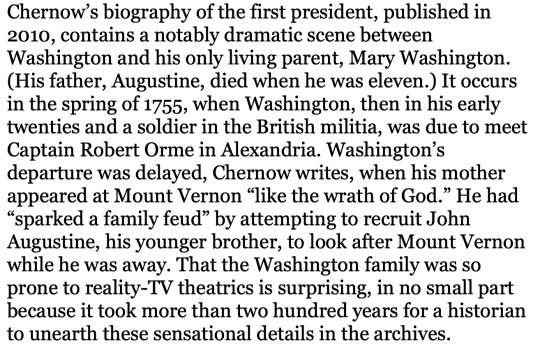
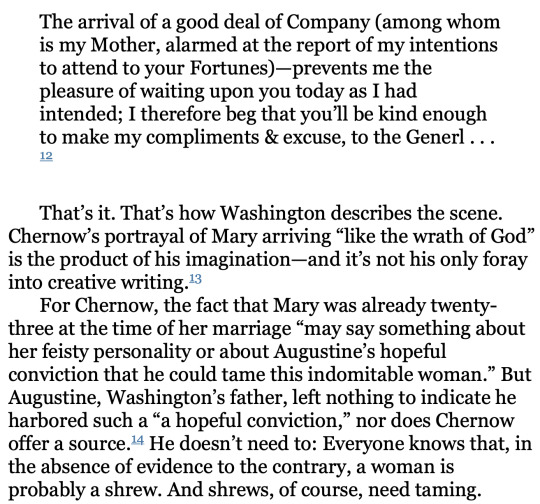

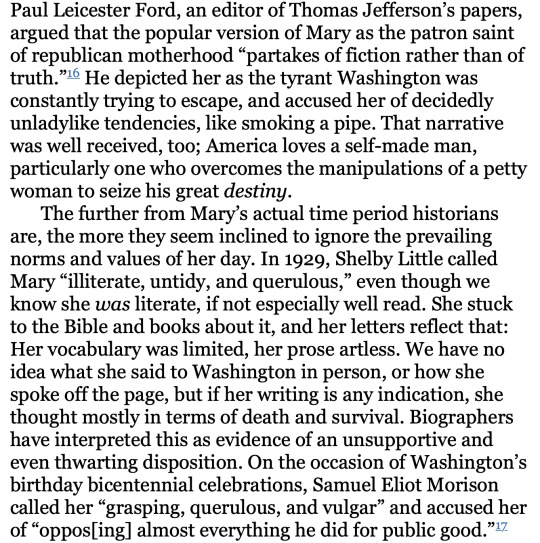
- Alexis Coe, You Never Forget Your First: A Biography of George Washington
10 notes
·
View notes
Text

Book 13 of 2023: YOU NEVER FORGET YOUR FIRST by Alexis Coe. Figured it’d be a good read for Washington’s birthday. A founding father biography without a painfully detailed recounting of military maneuvers—inspired!
#amreading#booklr#booksbooksbooks#reading#reading 2023#biography#history#american history#george washington#Alexis coe
0 notes
Text
just finished You Never Forget Your First after having dropped it in the middle a couple months ago lmao. great read! would definitely recommend. the section about Washington's retirement and the treatment of his slaves was incredibly sobering. the closing line of the book about the unmarked graves never mentioned anywhere in his documents really makes you sick
#that brief mention of wash parke custis forcibly conceiving up to forty children with enslaved women. girl i'm going to bite into a dry wall#alexis coe is a great writer. really enjoyed her insight#rayrambles
8 notes
·
View notes
Photo

In 1996, Nancy Lee Grahn debuted as Alexis Davis
3 notes
·
View notes
Note
Who would you say are some exceptional female historians who've written about the US presidency?
There are scores of great female Presidential historians, so any quick list that I make will invariably leave deserving historians out and I apologize ahead of time. Before I begin the list, I want to give special recognition to one of the very best:
Doris Kearns Goodwin's bibliography measures up against the books of any and all Presidential historians. Her first book, Lyndon Johnson and the American Dream: The Most Revealing Portrait of a President and Presidential Power Ever Written (BOOK | KINDLE | AUDIO) was originally published in 1976 but, in my opinion, remains one of the greatest Presidential biographies EVER written.
Others, in no particular order:
•Margaret Leech
•Amy S. Greenberg
•Elizabeth Drew
•Brenda Wineapple
•Candice Millard
•Amity Shlaes
•Jan Jarboe Russell
•Annette Gordon-Reed
•Alexis Coe
•Lady Bird Johnson (her diaries are priceless first-person accounts of her husband's Presidency and life in the White House)
•Joanne B. Freeman
•Lynne Cheney (surprisingly to most people, the wife of former Vice President Dick Cheney is a respected historian who has written excellent books on James Madison and the early Presidents from Virginia)
•Fawn Brodie
•Aida D. Donald
•Kate Andersen Brower
•Elizabeth Brown Pryor
•Peggy Noonan
•Nancy Gibbs
•Nancy Isenberg
•Susan Swain
•Margaret Truman
•Edna Greene Medford
#History#Presidents#Presidency#Presidential History#Presidential Historians#Writers#Women in History#Female Presidential Historians#Doris Kearns Goodwin
21 notes
·
View notes
Text
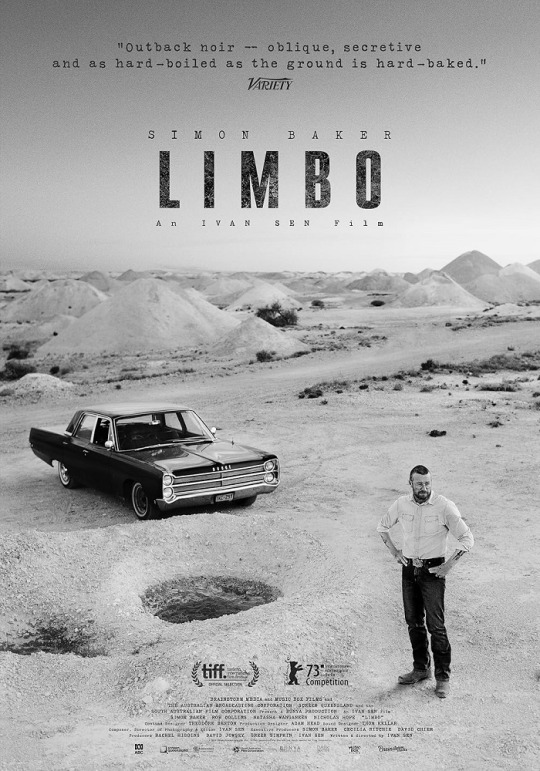
LIMBO (2024)
Starring Simon Baker, Rob Collins, Natasha Wanganeen, Nicholas Hope, Mark Coe, Tiana Hartig, Alexis Lennon, Joshua Warrior, Craig Rossiter, Shannon Wilson-McClinton, Nicholas Buckland, Ricardo Del Rio, Andrew Dingaman, Yarron Jowsey, Saliesha Dingaman, Reg Roordink and Tania Roesch.
Screenplay by Ivan Sen.
Directed by Ivan Sen.
Distributed by Music Box Films. 109 minutes. Not Rated.
Limbo is pretty much the perfect name for the (fictional) town at the heart of this offbeat police procedural which takes place in a small, dilapidated burg in the desert of the Australian outback. Limbo is offbeat for many reasons, not the least of which is that if you are looking for typical mystery beats – like for example finding and punishing the bad guy – you may be looking in the wrong place.
Limbo is much more of a character study of horribly damaged people trying to survive in a hellish area, an examination on how crime can affect the people who knew the victim even decades later, and also a scathing political allegory about the racial divide in that country. And while some questions of the central mystery are answered here, many others are left hanging.
Limbo tells the story of a white Australian policeman named Travis Hurley, who is sent to the title town to look into a 20-year-old cold case about the disappearance of a young Aboriginal girl. She was a native, and a troubled girl, and at the time the case was looked into in a very slipshod manner. Even the new cop acknowledges that had she been a white girl, the case would have been handled completely differently at the time.
Twenty years later, memories are very hazy, some of the witnesses and at least one of the main suspects are dead. Frankly, those people who are still around do not trust the police enough to speak out, particularly not to a white policeman.
Of course, there may be a reason not to trust this cop. Our first introduction to him has him driving into town, checking into the local motel (a spectacular place with rooms and hallways which are actually carved out of the rock in a local cave) and shooting up with heroin until he passes out.
Travis is played by the only actor that most people will be familiar with here. It is a continuation of the return to his native land for Simon Baker, best known as the lead in the long-running TV series The Mentalist and for roles in films like LA Confidential and The Devil Wears Prada. Baker is honestly just barely recognizable here – with multiple assorted tattoos, an emaciated build, a severe buzz cut, a scruffy beard and mustache. Literally, I spent the first five minutes of the film trying to figure out if that was really him on the screen.
Baker has spent the last few years (mostly since the pandemic, it seems) back in his native Australia, taking on harsh, realistic roles which bely his pretty-boy reputation in American television and film. Good for him for taking on this risky career reinvention. Limbo has some of his finest work.
Limbo takes place in a dust-strewn, depressing area of the Australian Outback. (The film was filmed in Coober Pedy, a tiny speck on the Australian map which was known for the mining of opals.) It is a world that is well known by the Indigenous filmmaker Ivan Sen, who gives the town of Limbo an oppressive sense of heat, dirtiness and desperation, which is only enhanced by the film’s crisp black and white cinematography. The film is an arid, oppressively sun-drenched film noir. (And yes, I get the fact that sunny and noir seem to be a contradiction in terms but watch Limbo and you’ll see.)
Travis may be a visitor to the town, but you realize quickly that he knows this kind of place well, and the town’s decrepit sense of sweltering rot mirrors the policeman’s psyche. Still, despite his depression and pessimism, Travis does believe in justice, and he does seem to truly want to help solve the case, no matter how futile his efforts may be.
He enters into a fragile relationship with the town and its citizens. He particularly connects with the victim’s brother Charlie (Rob Collins), with whom he even eventually reaches the tentative beginnings of a friendship, and his estranged other sister Emma (Natasha Wanganeen), who becomes almost a wife-figure to Travis, although in a platonic manner.
Even if Travis can’t give them an answer about their sister’s fate – and neither of them seem to expect an answer to be possible – perhaps Travis can mend the rift between the siblings and come to terms with some of his own demons.
There are no happy endings in Limbo, just a sense of incremental healing. Maybe that is all anyone can expect in that world.
Jay S. Jacobs
Copyright ©2024 PopEntertainment.com. All rights reserved. Posted: March 22, 2024.
youtube
8 notes
·
View notes
Note
Washington has been on my mind nearly every day and your writings of him are so👌👌👌
I'm reading "you never forget your first" by Alexis Coe and loving it
ahhh thank you!! it means so much to me 😭🥹
how is it?! you love it, it must be amazing! I have seen the cover in bookstores but I never got around to picking it up!! if you recommend it, I’m for sure adding it to my to-read list!
I’ll have to get a Washington x reader out soon ;)
4 notes
·
View notes
Text
Big February Sweep…
Since we are in February, I don’t think we will get those unique Soap Opera February Sweep, such as Metro Court and Monkey Illness in GH. Since most of the major storylines had finished in January except for the Metro Court Shooter, Dex is working for Michael, Gregory’s illness, Tracy is still the owner of Deception, and Cory is Mac’s child. I don’t count whatever Drew and Carly’s plan against Nina because that needs a whole post on its own; I would have two major events going on at the same time to tie up those storylines and to have new storylines out.
Half of the cast is at Sonny’s Place on the Island, and the other half is at the hospital. And the way I would break it down is:
Character:
Sonny’s Place: TJ Ashford, Alexis Davis, Sam McCall, Danny Morgan, Scout Cain, Kristina Corinthos-Davis, Molly Lansing-Davis, Sonny Corinthos, Dante Falconeri, Rocco Falconeri, Carly Spencer, Josslyn Jacks, Michael Corinthos, Willow Tait, Wiley Corinthos, Amelia Corinthos, Donna Corinthos, Ava Jerome, Avery Jerome-Corinthos, Damian Spinelli, Lois Cerullo, Brook Lynn Quartermaine, Olivia Falconeri, Leo Quarteramine, Laura Collins, Anna Devane, Drew Cain, Dex Heller, John Cate, Blaze, Diane Miller, Brick, Sasha Gilmore, Trina Robinson, Kevin Collins, Harrison Chase
Hospital: Marshall Ashford, Jordan Ashford, Curtis Ashford, Scott Baldwin, Lucy Coe, Valentin Cassadine, Charlotte Cassadine, Elizabeth Webber, Jake Webber, Aiden Webber, Maxie Jones, Felicia Scorpio, Georgie Spinelli, James West, Bailey Jones, Tracy Quartermaine, Ned Quartermaine, Robert Scorpio, Cody Bell, Nina Revees, Gregory Chase, Violet Finn, Hamilton Finn, Portia Robinson, Martin Grey, Cyrus Renault, Stella Henry, Brad Cooper, Selina Wu, Yuri, Amy Driscoll, Terry Randolph, Deanna Sirtis, Felix Dubuis, Monica Quartermaine
Events:
Island - Michael and Willow want to have a huge first birthday for Amelia, and they decided not to have Nina or anyone related to her there. John and Anna join them as they know who the shooter is, and Dex realizes his secrets are coming out. Another shooting happens.
Hospital - Cyrus and Selina set a bomb during a fundraising at the hospital where everyone else is, and they think Sonny and his family were there.
Characters that are Kill off:
Island: Baby Lansing-Ashford, Blaze, Willow, Wiley, Donna, Olivia, Drew, Dex, Brick, Sasha, Molly, Damian
Hospital: Marshall, Lucy, Gregory, Cyrus, Finn, Amy, Bailey
Characters that go off-screen aftermath:
Island: Michael & Amelia take a small break (I would recast Michael when they come back in six months); Leo goes to live with Grandma Falconeri; John finishes his case; Josslyn goes to visit Jax; Kristina takes a break and goes with Ric for awhile.
Hospital: Violet goes back to Hayden as Jason knows where she is. Nina decides to visit NYC to check in on her family’s company. Cody goes to find Mac to tell him the truth.
The ending of the storylines:
Island: the Metro Court Shooter: Blaze is the older sister of Lila Rae, meaning she is Lozreno’s daughter, and it is their mob family who is behind it. Dex is working for Michael: Everything they did and who knew comes out, and he is actually working for the FBI. All of his backstory was a lie as he is Stone Cate Jr.
Hospital: Gregory’s illness: He dies protecting Elizabeth’s boys, who have Violet with them. Tracy is still the owner of Deception: She overhears Maxie telling Ned who is injured and what his daughter is trying to do, and Tracy realizes that she watched Maxie grow up and this was her dream. Cody is Mac’s child: Robert, Felicia, and Cody are stuck together, and he tells them.
Start of Storyline
Island: Carly and Sonny lose their minds again with Jason returning; they are sent to a Mental Hospital, where we get a break from the characters. Sam asks Alexis to help her run Drew’s company for Scout, and she deals with Danny’s anger with Jason and everything that happens to them. Brooklyn and Chase's wedding is put on hold. TJ started having PTSD from losing his girl and baby.
Hospital: Jason saves Elizabeth and Monica from Cyrus and tells them he has both memories. Elizabeth’s sons (all three of them) have daddy issues, and Elizabeth realizes she has both issues with her parents. While rebuilding the hospital, Elizabeth discovers that her family owns it. Terry realizes how understaffed the hospital is and starts looking for people. Maxie is asked to take over Crimson as well.
2 notes
·
View notes
Text

L'historienne Rachel Hope Cleves a décrit la pédophilie comme du "sexe intergénérationnel", ajoutant qu'elle ne décrirait pas la maltraitance des enfants avec des mots tels que "survivants ou nécessairement abusés".
Cleves a écrit un éditorial dans le Washington Post plus tôt en mars qui s'opposait à ce que les républicains veuillent interdire les émissions de dragsters pour renforcer "les hiérarchies traditionnelles de race, de classe, de sexe et de genre".
Le clip qui refait surface faisait partie d'une interview Zoom de Cleves avec son collègue auteur Alexis Coe en 2020, hébergée par Chicago University Press.
"En écrivant ce livre, je ne voulais pas utiliser le discours de la pédophilie parce que j'avais l'impression qu'il ne parviendrait pas à saisir cet autre système d'organisation historique, pour le sexe intergénérationnel, qui était le sujet que je voulais aborder", déclare Cleves dans la vidéo.
Cleves est professeur/seuse d'histoire à l'Université de Victoria (C.B.), selon leur site Web, mais est actuellement en congé.
6 notes
·
View notes
Note
happy sleepover saturday, sola! i recently read a book called the frangipani hotel and it made me think of you; it's a book of short horror stories inspired by vietnamese folklore. have you been reading anything interesting these days?
ooh that sounds awesome, i'm not usually a huge horror person but it seems i need to take a look!
rn i'm reading you never forget your first by alexis coe (a gendered biography of george washington - it's weird and fun and historical) after we read part of it in my historiography class + ace by angela chen (a book that i can already feel is going to rewire my brain like gender queer by maia kobabe did) and deeply recommend both!
#sola answered#deep-hearts-core#i've been seeing snippets/quotes of ace go around for years but i finally feel like i'm in a place where i needed to read it#and boy has it delivered#i'm only 2 chapters in bc that's how long the preview is but i hope the library gets that hold to me asap#ty shiloh!
3 notes
·
View notes
Text









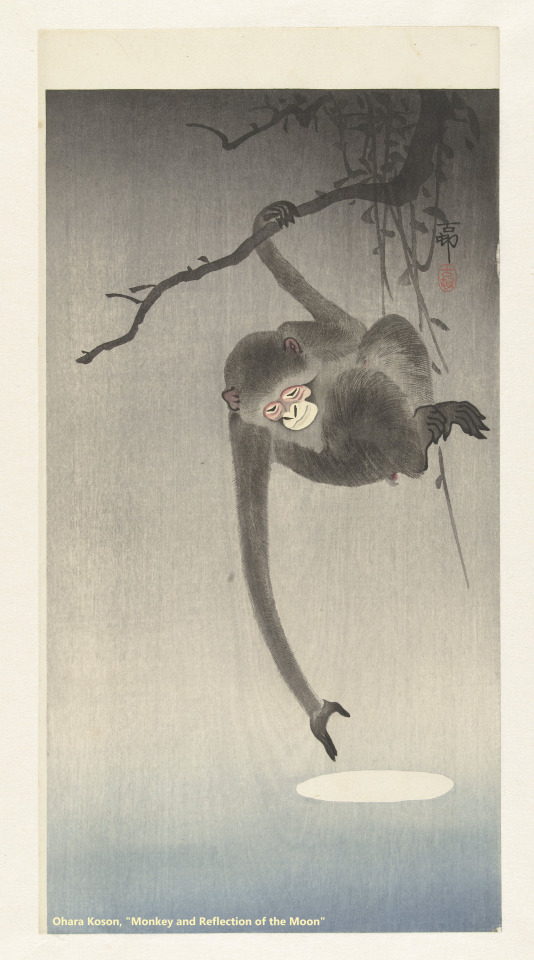







on preservation
The Theory and Craft of Digital Preservation (Trevor Owen) || "Death of an Era": Last Hours of Hawthorne's House, Rock Ferry, Birkenhead, Wirral (Geoffrey Moore) || The Magic of Light and Shadow (Rashad Alakbarov) || "The Lost Breath of Trees" (Colleen K. McElroy) || Making Surimono for the New Year (Katsushika Hokusai) || "The Opposite of Abandonment" (Alexis Aceves Garcia) || "Wrestling With Shape Shifters": Perspectives on Preserving Memory in the Digital Age (Kenneth Thibodeau) || Butterflies (Ernst Fröhlich) || Monkey and Reflection of the Moon (Ohara Koson) || What Happens When We Stop Remembering? (Heidi Lasher) || Willamette River Channels (Dan Coe) || drawings by a boy named Onfin (weird medieval guys) || Letter from 3-year-old August von Goethe to his father J.W. v on Goethe (GSA 28/2 Bl. 155) || for space (Doreen Massey)
#web weaving#digital preservation#history#memory#yes this came out of readings for my course. no one perceive me#even worse the first draft of this was like. twice as long lol#what else can you do when you're feeling shrimp emotions about collective memory#my art#pretty words#xuserann
47 notes
·
View notes
Text
Japan Part 1
Weeks before our flight, I was so stressed out about everything. I injured my knee and could not walk, and the endless overtime in my current project.
The night before my flight hindi pa ako nakakapagstart mag empake huhu sobrang busy and stress to the point na parang ayoko na pumunta ng Japan.
Around 2AM umalis na ako sa amin and arrived in Manila around 5AM na ata. Kumain muna then went straight to the airport and waited for Berna and Alexis to arrive.
We checked in our baggage and headed straight to the immigration. My IO experience was smooth; the lady asked for my return ticket, accommodation, and the COE. Even joked na mukhang sinusulit ko daw ang bakasyon since 13 days kami sa Japan. Yezz miss maam you're right choz
After IO, we went to the PAGGS lounge since perks yun ng credit cards namin. Ang sarap ng food like myghad nakailang balik ako sa tapa nila. Meron ding ice creams, wines, beers, etc. We stayed there ng more than an hour din siguro and went na to our boarding gate.
The whole airplane ride feels like forever, can't even sleep kasi excited ako. My mind was "totoo ba talaga 'to?" I still can't believe I'm going to Japan, pangarap ko lang 'to before.
Around 7PM, we landed to Kansai Airport, iba na yung amoy. Amoy ibang bansa lol. The process was smooth lang very organized din yung mga staff. We collected our baggage and naghanap na kami ng makakainan.
We ate at Sukiya, tinikman namin yung curry since lagi namin syang nakikita sa mga anime and mukhang masarap but I guess hindi sya bagay sa taste buds ko hahaha. What I noticed sa mga restaurants, may free tea lagi and ang sarap ng tea nila infairness.
We looked for a place to stay, sakto may mga seats na bakante and dun na kami nagstay and humiga. Next thing I know, umaga na :D
Nag bihis at hilamos muna kami ni Berna habang si Alexis tulog pa (literal na I woke up like this) tapos pumunta na kami sa counter ng Jetstar para i-checkin yung baggage namin.
Dito na nagstart and another kabobohan ko...
When I dropped my luggage, may pictures ng prohibited items dun and isa dun is ung battery, the staff asked me if may prohibited items daw ba sa luggage ko and I said 'No' after that umalis na kami. Minutes later I realized na nasa luggage ko pala yung CR2032 battery ko and nakalimutan kong sabihin sa staff. Medyo panic na ako that time, habang nagoorder kami sa Mcdo hindi ako mapakali and sinabi ko na nga kila Berna na ung battery nasa luggage ko and nakalimutan ko sabihin. Sabi nila okay lang yun since from PH to Japan hindi naman binawal. As an overthinker, sinearch ko ano pwedeng mangyari kapag naiwan ung battery, sabi sa google, pwedeng sumabog daw yung eroplano tapos si Alexis pinakita pa ung video na sumabog ung battery edi mas lalo akong nagpanic to the point na iniisip ko baka makulong ako sa Japan. I know OA
Me: "Baka makulong ako kapag sumabog yung eroplano"
Berna: "Tanga patay kana kapag sumabog hindi ka makukulong" HAHAHAHA
Ending, kahit almost 30 minutes nalang before boarding pumunta ako sa staff and sinabi ko na nakalimutan ko may battery pala ako sa luggage, walang katapusang sorry nalang ako and ang bait nila kasi sabi "It's okay, it's okay". Kinuha nung staff ung luggage ko and ilang minutes na hindi pa bumabalik, medyo panic na ako and sabi ko kapag di umabot susunod nalang ako sa Tokyo (OA ulit) ayun buti dumating yung staff dala yung baggage ko galing sa eroplano at pinaremove sakin ung battery :D
Okay nakahinga na ng maluwag, see you Tokyo <3
0 notes
Text
Money burns a hole in your pocket
Coe
Bill
Mr
Winer
Jerry
Godwin
Michael
de
William
Louis
Trent
Well
Mickey
Lott
Howard
Brandeis
Alexis
Steamboat
dean
Johnny
Hemingway
Seely
Springer
Daley
Tocqueville
John
Dave
Stephanie
Daguerre
Talbot
Ed
Elizabeth
Barish
Professor
Crichton
Mike
Yanofsky
Jr
Felten
Brian
George
Brown
Eastman
0 notes
Text
Alexis Coe (the author) is quoting all the homoerotic descriptions of Washington's clapping thighs she has come across in biographies written by men. I love this book
#i. love her#not only is she very entertaining but her points and critiques are super valid in my opinion#ray reads
14 notes
·
View notes
Text

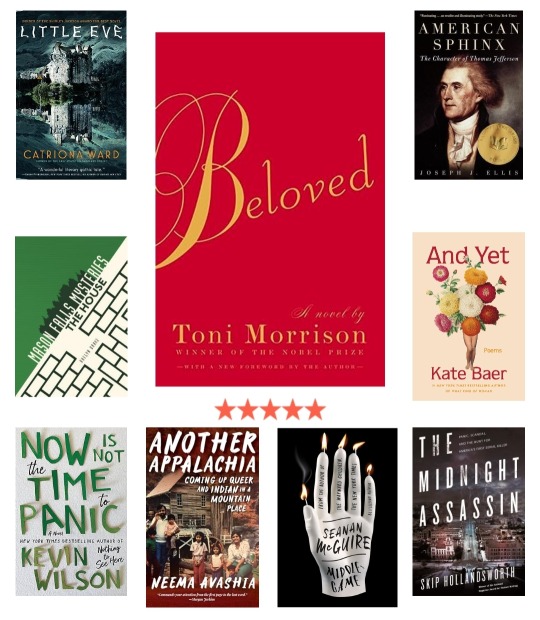
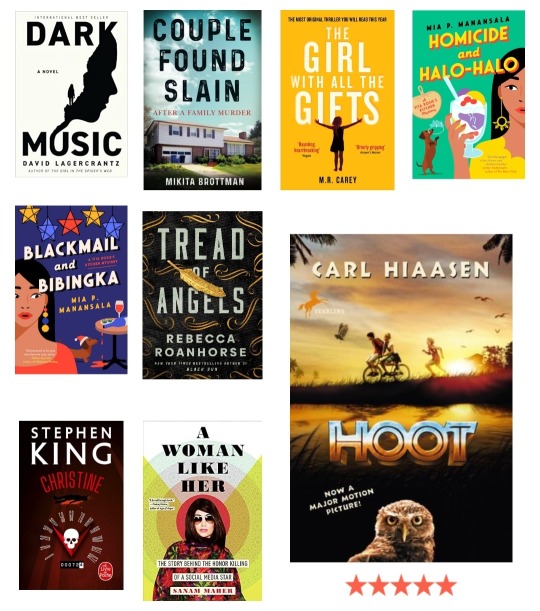

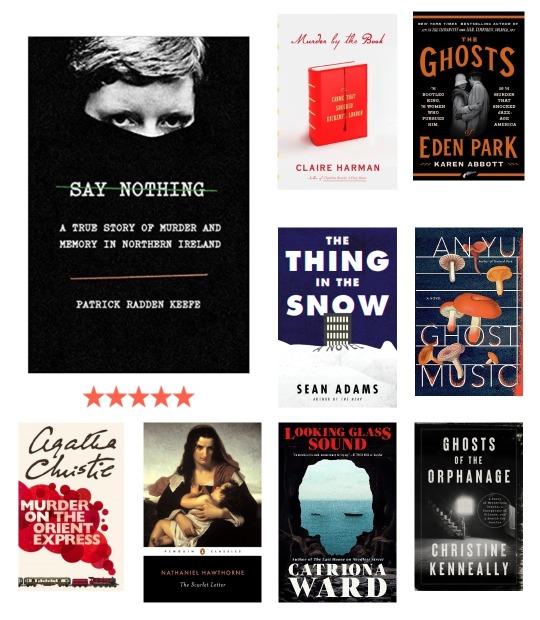
my reads from this year! no point in doing a photo of a stack of books since only two were physical books. I think my overall favorites were Say Nothing and Middlegame/Seasonal Fears.
also I have a stack of presidential bios I need to read (currently working on Alexis Coe's Washington bio; have some of Adams, Van Buren, Tyler, Polk, Hayes, McKinley, and FDR waiting for me on my bookcase) because I kinda fell off on that goal this year.
0 notes
Text



When Sheep Ruled Central Park
Alexis Coe * Feb 10, 2014
When the temperatures rise in New York City, rendering the entire place a hot, fetid mess, locals and tourists alike flock to Central Park's Sheep Meadow.
For just a few hours, as many as 30,000 can claim some space as their own, as they sunbathe and picnic, fly kites and toss balls. And that’s just during the summer. Crowds numbering as many as 400,000 have flocked to the grass for protests and “love-ins,” to watch the first man land on the moon and listen to concerts by the likes of Barbara Streisand and the New York Philharmonic. President Harry Truman delivered a speech there on Navy Day, and on 9/11, Black Hawk helicopters called it base camp.
And yet, Sheep Meadow was never supposed to be any of these things ”“ including what its very name suggests.
Sheep weren’t part of landscape architect Andrew Jackson Downing’s original vision for the land. Downing first proposed the development of the land that would become Central Park, but he did not get to carry out his plan. He died, along with 80 others, aboard a steamer that exploded on the Hudson River. After his death, Frederick Law Olmsted and Calvert Vaux won the competition to create an open lawn (known as “Greensward” in the 19th century), which was to be the site of militia drills.
But after they won the competition, Olmsted and Vaux did everything they could to repurpose the open lawn – and grazing sheep seemed like a winning alternative. They evoked Romantic images of a traditional English gardens, where polite society strolled quietly among the greenery, considerate and contemplative. With just a little convincing, “the Parade” became “the Green,” though it was decreed that it would still be, with few exceptions, off limits to the public.
Spotting a herd on the busy streets of Manhattan became an infrequent sight on the crowded streets, and when they did make an appearance, it wasn’t for sustenance; they were usually headed for the slaughterhouses on the Upper East Side.
Before the area could be populated by sheep, however, it had to be purged of impoverished New Yorkers. Small communities of African-Americans, as well as Irish and German immigrants, were promptly evicted, forced to abandon the makeshift homes they built on the rocky, swampy soil.
In 1864, 200 sheep were unleashed onto the newly grassed terrain, but it would be wrong to think Manhattan was teeming with livestock. Indeed, many parts of Manhattan were still agrarian during the first half of the nineteenth century, but by the time Central Park was established, the rural landscape had been altered by the industrial revolution, and most farms had all but moved out of the city. Landowners broke up their long-held acreage for urban uses, marking up maps with building lots to accommodate modern industry, and those who worked in it. Immigrants crowded tenement buildings, and tanneries replaced fertile riverfront crops. People weren’t bringing their own livestock to graze on public grounds.
The English-born Vaux oversaw the purchase of a flock of pedigree Southdown (now Dorset) sheep, who were housed in a “Sheepfold,” a fine Victorian building erected across the drive. The sheep slept in the barn, while the shepherd and his family lived on the second floor. The ends of the building were open to the public as pavilions, which children treated as an interactive exhibition. Twice a day, the shepherd would disrupt traffic (first carriage, then car) while herding the sheep over a crossing, towards the meadow. With the exception of those who were delayed, most considered the sheep a pleasant spectacle to behold. Onlookers were discouraged from entering their space, but they strolled along the meadow’s borders, a vestige of the past surrounded by an increasingly built-up cityscape. Manhattan paid for the sheep’s maintenance, but they weren’t free loaders. Their daily grazing ensured the grass was well-maintained and fertilized, and the wool they shed was collected and auctioned off.
1 note
·
View note